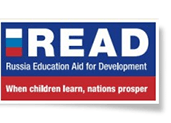Sustainable Development Goal (SDG) 4 Monitoring
Goal 4 of the United Nations’ Sustainable Development Goals (SDG) focuses on ensuring inclusive and equitable quality education and promoting lifelong learning opportunities for all. It is a critical goal for World Bank client countries, many of which still struggle with ensuring that children stay in school and learn. Progress towards SDG 4 is measured in several ways, including tracking improvements in children’s learning levels in primary and secondary school. A key SDG 4 indicator (4.1.1) requires countries to report on the “proportion of children and young people in Grade 2 or 3, at the end of primary education, and at the end of lower secondary education to achieve at least a minimum proficiency level in reading and mathematics”. Currently, there is no one reading or mathematics assessment that would allow all countries to measure and report on their students’ proficiency levels for each of these grade/education levels. Instead, there are a variety of different assessments. These include international assessments, regional assessments, citizen-led assessments, and countries’ own national assessments. While middleincome World Bank client countries are increasingly likely to participate in international assessments, lower-income countries are more likely to take part in regional or national assessments that yield data with limited to no cross-national comparability. A sizeable number of countries do not have any formal assessment program and data from citizen-led assessments may be all that is available.
Efforts are underway to make this ‘tower of babel’ of assessments ‘talk’ to each other so that regardless of which assessment a country uses, the results can be reported on a common scale. One such effort involves statistically linking regional and international assessment exercises, but this will take some time. In the interim, a global community known as the Global Alliance to Monitor Learning (GAML), convened by UNESCO Institute for Statistics (UIS), is devising other ways to meaningfully compare student performance on these assessments.







